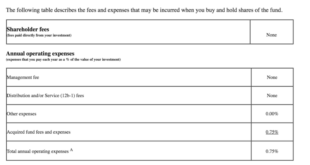Mortgage Broker Guide 2024: Path to Finding the Right Broker. In the dynamic world of real estate, finding the right mortgage broker can make or break your financial journey. A well-informed mortgage broker acts as a bridge between lenders and borrowers, simplifying the complex process of securing a home loan. In this Mortgage Broker Guide 2024, we’ll explore the essential factors to consider, tips to navigate the market, and answers to common questions about mortgage brokers.
Understanding the Role of a Mortgage Broker
A mortgage broker serves as an intermediary between you and potential lenders. They have access to a broad range of loan products, helping you find one that fits your needs. Unlike banks that offer only their products, brokers bring variety and expertise, ensuring personalized guidance.
Benefits of Working with a Mortgage Broker
- Access to Multiple Lenders: Brokers can present you with a variety of loan options.
- Tailored Advice: They assess your financial situation and recommend the best loan structure.
- Negotiation Power: With their expertise, brokers often secure better terms and rates.
- Time-Saving: They handle the paperwork and streamline the application process.
How to Choose the Right Mortgage Broker
- Credentials and Licensing: Verify the broker is licensed and affiliated with reputable organizations.
- Experience and Expertise: Choose brokers with extensive experience in the type of loan you need.
- Client Reviews: Check online reviews and testimonials for a broker’s reputation.
- Transparency: Ensure the broker discloses all fees upfront.
- Communication Skills: Opt for brokers who explain complex terms in layman’s language.
Key Steps in Working with a Mortgage Broker
- Initial Consultation: Discuss your financial goals and loan requirements.
- Loan Assessment: Brokers evaluate your credit score, income, and debt-to-income ratio.
- Product Comparison: They compare loan options from various lenders.
- Loan Submission: The broker submits your application to the chosen lender.
- Approval and Closing: They guide you through the final approval process and closing details.
Advantages of Using a Mortgage Broker in 2024
As the mortgage landscape evolves, brokers are adapting with cutting-edge tools and insights. Some key advantages include:
- Access to Specialized Loans: Brokers often have insights into niche products.
- Tech Integration: Advanced platforms streamline loan comparisons.
- Market Expertise: Brokers stay updated on changing interest rates and lending criteria.
10 Tips for Finding the Best Mortgage Broker
- Research Thoroughly: Investigate potential brokers online.
- Ask for Recommendations: Consult friends or family for referrals.
- Evaluate Their Network: Ensure they work with a diverse range of lenders.
- Check Accreditation: Look for brokers certified by professional bodies.
- Understand Their Fees: Ask about commission and additional costs.
- Compare Services: Evaluate multiple brokers before making a choice.
- Inquire About Follow-Up: Choose brokers who offer post-loan support.
- Seek Transparency: Avoid brokers who are vague about loan terms.
- Focus on Communication: Ensure they are responsive to your queries.
- Trust Your Instincts: Choose someone you feel comfortable working with.
10 Frequently Asked Questions (FAQs)
- What is a mortgage broker?
A mortgage broker is a professional who connects borrowers with lenders to secure a mortgage loan. - How are mortgage brokers paid?
They typically earn through commissions from lenders or fees charged to clients. - Is using a mortgage broker better than going directly to a bank?
Brokers offer access to more loan options compared to a single bank. - Do mortgage brokers check credit scores?
Yes, brokers review credit scores to match borrowers with suitable loans. - How long does it take to secure a loan through a broker?
The timeline varies but typically takes 2-6 weeks depending on documentation and lender processing times. - Are mortgage broker fees negotiable?
In some cases, fees can be negotiated depending on the broker. - Can a mortgage broker help with poor credit?
Yes, many brokers specialize in finding loans for clients with less-than-perfect credit. - What’s the difference between a fixed and variable rate loan?
Fixed rates remain constant, while variable rates fluctuate based on market conditions. - Do I need a mortgage broker for refinancing?
While not mandatory, brokers can help find better refinancing deals. - What documents do I need for a mortgage application?
Commonly required documents include proof of income, bank statements, and ID.
Conclusion
Mortgage brokers are invaluable allies in navigating the complex mortgage landscape. By leveraging their expertise, borrowers can access tailored loan solutions, save time, and secure favorable terms. As we head into 2024, understanding the evolving market and working with a trusted broker can ensure a smooth home-buying experience.
Take the next step with confidence—whether buying your first home or refinancing an existing loan, the right mortgage broker will be your guide to success. By following the tips and insights shared in this guide, you’ll be well-equipped to make informed decisions for your financial future.
 mortgage.kbk.news
mortgage.kbk.news
